By Laurie Laker ’12
It takes a special character to bridge the divides of a college campus. So often, we stay in our respective lanes – siloed by discipline and department. At 94 years of age, Ray O. Werner remains that character, and his staying power and lasting influence continue to resonate around the college. Born in Edgar, Nebraska, in April 1922, Werner’s upbringing was hard. His parents were the children of German farmers who’d settled in Nebraska, his father a farmer until conditions necessitated a career change to carpentry. Growing up in the Midwest during the Great Depression, Werner was instilled with an iron-clad work ethic from day one – and it has guided him ever since.
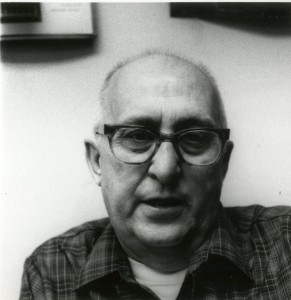 During his time at Hastings College, where he earned his bachelor’s degree in economics, Werner worked as a janitor and lived in low-income housing to pay his way through college. Having done well at Hastings, Werner went on to the University of Nebraska, where he obtained his master’s degree in 1947. While at Nebraska, he won a highly competitive year-long fellowship to the University of Tennessee, where he studied economics.
During his time at Hastings College, where he earned his bachelor’s degree in economics, Werner worked as a janitor and lived in low-income housing to pay his way through college. Having done well at Hastings, Werner went on to the University of Nebraska, where he obtained his master’s degree in 1947. While at Nebraska, he won a highly competitive year-long fellowship to the University of Tennessee, where he studied economics.
As Werner studied in Nebraska, the world around him shifted on its axis. In 1941, the United States entered World War II, prompting millions of young people to redirect their energies toward national service. Werner was no different, joining the United States Army in 1943. Assigned to a Special Training Unit designed for inductees who had failed the Army General Classification Test, Werner unexpectedly found himself in teaching for nearly two years before being deployed overseas. Part of the Sixth Armored Division in Europe, Werner served on active duty until 1946. Serving across Europe, his division saw action at Normandy, in the days following the Battle of the Bulge, and assisted in freeing Allied prisoners and liberating the Buchenwald concentration camp, one of the largest on German soil. During the course of his service, he was awarded both the Combat Infantryman’s Badge and the Bronze Star. Honorably discharged after the war, Werner remained a reservist with both the Army and Air Force until 1982, when he retired with the rank of major. Of his military service, he says that the “greatest significance was having convinced me that I not only had the ability to teach, but that it was the career I hoped and planned for.”
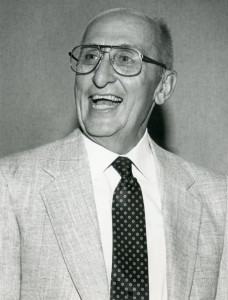 Following his active service, Werner threw himself back into academia. Returning home to the Midwest briefly, he held research assistant positions at both the University of Nebraska and the University of Illinois before arriving at Colorado College in the fall of 1948. His first official day at Colorado College came on September 1, 1948. He was just 26 years old, and arrived as an instructor of economics. He would remain at the college for 38 years, with his final day as a professor coming on June 1, 1987. From that first day, Werner’s drive and dedication to the intellectual community of the college remained the hallmark of his tenure. His lectures became renowned for their flexibility, and he was comfortable speaking to any topic that his students could raise.
Following his active service, Werner threw himself back into academia. Returning home to the Midwest briefly, he held research assistant positions at both the University of Nebraska and the University of Illinois before arriving at Colorado College in the fall of 1948. His first official day at Colorado College came on September 1, 1948. He was just 26 years old, and arrived as an instructor of economics. He would remain at the college for 38 years, with his final day as a professor coming on June 1, 1987. From that first day, Werner’s drive and dedication to the intellectual community of the college remained the hallmark of his tenure. His lectures became renowned for their flexibility, and he was comfortable speaking to any topic that his students could raise.
Specializing in political economy, Werner’s work was vital for a world entering the post-war years. Teaching during the course of the 20th century’s most tumultuous moments, both domestic and global, his time at CC also coincided with the adoption of the college’s pioneering Block Plan, which came into effect in 1970. As an articulate and informed opponent of the plan, Werner demonstrated his uncanny ability for bridging divides when — following the 58 percent passing vote from the Academic Program Committee — he said, “It’s been a fair fight, I move to implement the plan.” So began a new dawn for Colorado College, one that brought renewed and refined focus to the liberal arts, bringing CC toward the exemplary standing that it holds and maintains today.
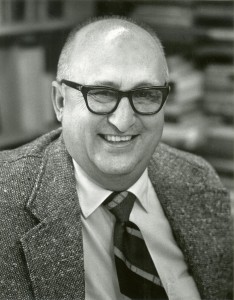 Continuing to pursue academic excellence, Werner went back to school, working on his Ph.D. during summers between academic years of full-time teaching. Conferred in 1960, Werner’s Ph.D. marked the culmination of years of hard work. At CC, he climbed the academic ladder, chairing the Economics and Business Administration Department (now the Economics and Business Department) from 1956 until 1977. He achieved full professor status in 1964. In 1968, Werner’s most telling contribution to his field was installed at Colorado College: the Political Economy major, now known as the International Political Economy major. The major, founded by Werner and Professors Doug Mertz (Political Science), Fred Sondermann (Political Science), and Darnell Rucker (former Philosophy Chair), recognized that the three fields spoke to one another as both academic subjects and also professional fields of work. “Economics,” Werner said at the time, “without a recognition of the sphere of power relations in which it functions, is sterile.” Adding to his profound impact at CC, Werner was one of five Fellows in Law and Economics at Harvard Law School from 1965-67.
Continuing to pursue academic excellence, Werner went back to school, working on his Ph.D. during summers between academic years of full-time teaching. Conferred in 1960, Werner’s Ph.D. marked the culmination of years of hard work. At CC, he climbed the academic ladder, chairing the Economics and Business Administration Department (now the Economics and Business Department) from 1956 until 1977. He achieved full professor status in 1964. In 1968, Werner’s most telling contribution to his field was installed at Colorado College: the Political Economy major, now known as the International Political Economy major. The major, founded by Werner and Professors Doug Mertz (Political Science), Fred Sondermann (Political Science), and Darnell Rucker (former Philosophy Chair), recognized that the three fields spoke to one another as both academic subjects and also professional fields of work. “Economics,” Werner said at the time, “without a recognition of the sphere of power relations in which it functions, is sterile.” Adding to his profound impact at CC, Werner was one of five Fellows in Law and Economics at Harvard Law School from 1965-67.
His teaching garnered him numerous awards over the years, including the Sidney G. Winter Award for Outstanding Teacher of Economics and Business Administration, the Chapman Fellowship for Research in Economics, the Louis T. Benezet Faculty Rotating Fellowship, the Lucile and David Packard Professorship, the Burlington Northern Foundation Faculty Achievement Award, and the Gresham Riley Award. Additionally, the Ray O. Werner Award for Exemplary Teaching in the Liberal Arts and the Ray O. Werner Thesis Award are both named for him.
Beyond the classroom, Werner’s passions for athletics and community engagement are as well known as his teaching prowess. Having never been to a hockey game prior to moving to Colorado Springs, he first fell in love with the sport because “it sounded interesting on the radio!” Serving on the college’s Athletics Board for 17 years, as well as being the NCAA and WCHA faculty representative for 22 years, Werner’s love for CC athletics remains as profound as ever. Named to both the WCHA and CC Athletics Hall of Fame, he also received the WCHA’s Distinguished Service Award in 1986. The Ray Werner Classroom in El Pomar Sports Center was named in his honor in 2012. For 25 years, Werner served as the editor of the Legal Developments in Marketing section of the Journal of Marketing. In the wider Colorado Springs community, Werner has served as president of the United Way, president of the Chamber of Commerce, and member of the Board of Directors of the Colorado Springs National Bank and United Bank of Colorado Springs. In addition to this, he has been a local church deacon and co-founded the Colorado Springs Chess Club.
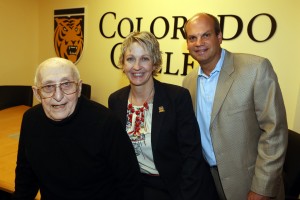
Werner with Colorado College President Jill Tiefenthaler and her husband Kevin Rask, at the dedication of the Ray O. Werner classroom in El Pomar Sports Center.
A fitting testament to such a rich and dedicated career comes in the form of Werner’s continued regular email blasts to a group of 67 friends, former students, and faculty about CC hockey and contemporary economic developments. Werner’s lust for learning continues well into his 90s and remains as vital today as it was when he first joined the college in 1948. We’re thrilled to celebrate Ray O. Werner’s life with Colorado College, and his continued example of excellence both in and beyond the classroom.
Share your anecdotes and recollections about this wonderful member of our community!
If you have photos of Ray to share, please email them to
communications@coloradocollege.edu.
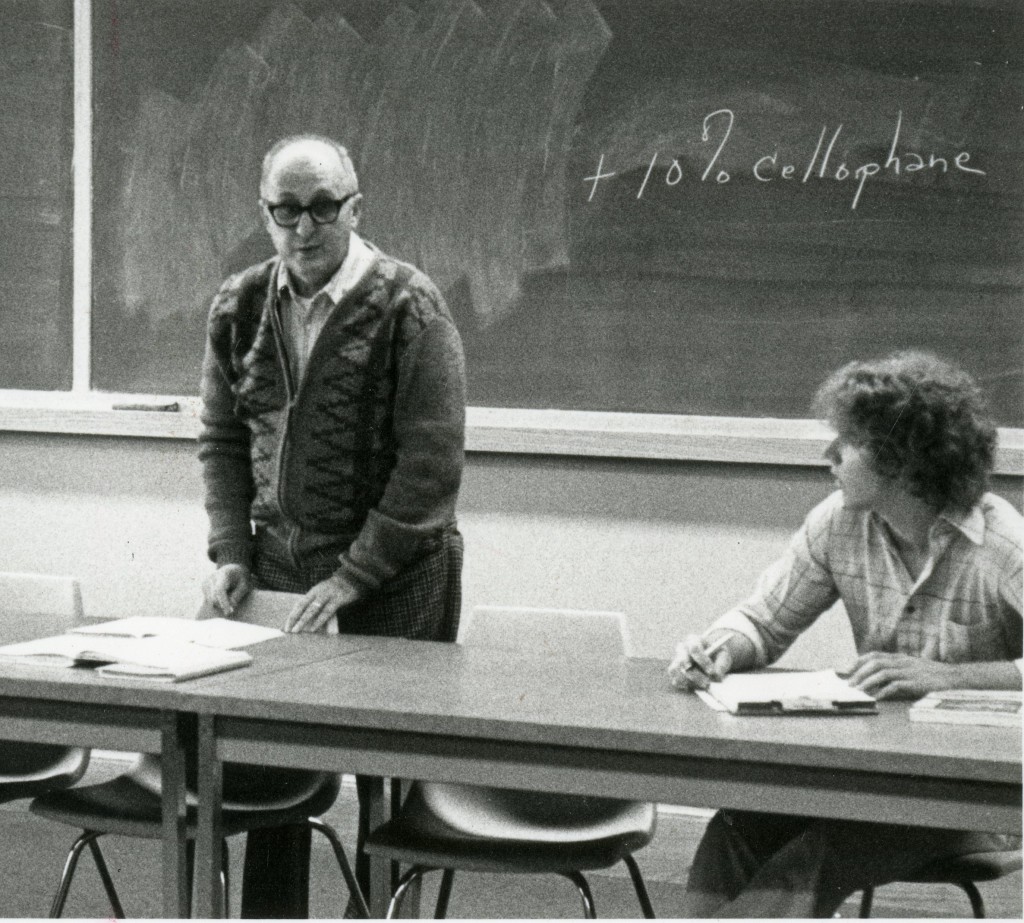
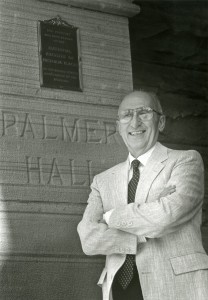
10 Responses to Professor Emeritus Ray O. Werner
When the Ray Werner Award For Exemplary Teaching was about ready to be introduced to the college, Ray was asked to point the award in his preferred direction. It could have been aimed at exemplary young economics teachers, or at exemplary young teachers in any field.
In some ways, the question asked Ray how he best saw himself: as an economist or as a teacher.
Without a moment of hesitation, the answer was “teacher”. The award is given each year to young Colorado College faculty who are not only accomplished in their academic field, but who are–most importantly– exemplary teachers.
I have the pleasure of being included in Ray’s email community, and I know I can safely say on behalf of every one of us, and we’re none of us spring chickens, that Ray continues –to this very day — as the exemplary teacher he’s been for decades upon decades.
Super article about a wonderful man. Ray was my faculty advisor and his superb guidance greatly assisted me at CC and beyond. I often reflect on how much I owe to Ray and the other faculty members at CC for the doors that they opened in my mind for which I remain grateful. In time of campus turmoil about free space and limiting open diiscussion, it is my sincere hope that CC remains an institution that as the result of Ray and others has been known as an institution encouraging open and frank discussion of any and all in a respectful forum. As one of the members of his email chain, I can assure you that this open discourse continues today with his leadership and guidance.
Most every person on the planet can identify a handful of people who have made a positive difference in their lives. For me and many others,Ray was one of those special people. This article is right on the button, but I offer two amendments.
One, in pre-block days, Principles of Economics met MWF at 8:00 a.m., not a time that typical college students are wide awake. Into the classroom comes this bundle of energy, asking questions of students even before he puts his notebook down. If a student wasn’t awake at 8:00, he/she was suddenly wide awake at 8:01!
Two, the red pen. Even the most carefully thought-out essay or exam question received constructive comments written in Nebraska “Big Red” ink! That feedback is why so many of us learned to write, not in a literature class but in Econ.
Thanks, Ray, for everything, more than we can ever express. And I know your sons are just as proud of you as are your students.
Bill Campbell ’67
I am Daniel Arroyo-Rodriguez, current recipient of the Ray O. Werner Award for Exemplary Teaching in the Liberal Arts. Professor Ray Werner’s support and generosity is allowing me to advance my research agenda in Catalonian language, literature and culture, and also in Sephardic literature. This research has already taken me to California, Spain and Israel. Although I never met professor Werner personally, I asked many of my senior colleagues about him and I always get similar answers: an outstanding professor; somebody who has been making a difference for decades; somebody who represents the best values of our institution. As a CC faculty member, I cannot imagine a greater honor than receiving a professorship named for him. I am committed to following his example with the hope that I may also inspire new generations of faculty, students and members of our community. I look forward to meeting him personally and thanking him for all his support. Professor Ray O. Werner, todo mi agradecimiento.
Daniel Arroyo-Rodríguez
Ray Werner Associate Professor
Spanish and Portuguese Department
I don’t remember many of my classes at CC as vividly as I remember Economics 103 with Ray Werner. He was a brilliant and entertaining teacher, and what he taught has stuck with me for nearly forty years, even though my major and my career were not even close to business or economics. I am truly grateful for his fabulous class.
A great teacher.
A smart economist.
A fun, engaging, caring and traditional man, also sporting a twinkle in his eye.
Don’t know if I learned more from Ray Werner or his equal, Professor Hecox. Between the two of them, I learned the basic concepts that have guided my career.
Deep thanks to them both.
John Weiss ’78
If this gets to Ray, and I hope it will – you talked me into an economics major (last thing on my mind) with your patented exuberance. I took that as jump to go on to an MBA from Dartmouth, later making a career in finance and technology out of it, currently as a consulting CFO in biotech. Economics is still forefront in my mind. And I still tell stories about this crazy professor, Ray, who never let me sit quietly in class hoping to not be noticed, instilling enthusiasm all the way. Thanks Ray! Dave Ramsdell CC ’73
My recollections of Ray go way back to some of my earliest memories. Both my Mom and Dad graduated from CC, my Dad grew up in the Springs; and both were taught by Ray. My Dad, also being a vet, was somewhat closer in age to Ray than his own peers. They became good friends, and hence we visited often from our home in Kansas. In fact Ray stopped by our home on his way to New England in those 60’s, my Dad having been transferred to New York City.
I attended CC, during what has now become the early days of the block plan, with one of his sons who was, and continues to be, one of my good friends. I took a few economics blocks with Ray. I can honestly say that he truly taught me the meaning of “there is no such thing as a free lunch”, and it has served me well all these years. He was always one I could count on for sage advice whatever the dilemma. I too, whole heartedly concur with the article.
The intelligent and entertaining dialog continues to this day whenever I visit the Springs, usually for the student/alumni Rugby game during the Homecoming Weekend. I am always remembered, along with events that I often do not remember myself, and both welcomed and appreciated. Ray remains as honorable a man as I have ever known.
Steven Johnson ’79
When folks outside CC ask me what I majored in, I say “Economics.”
When CC folks ask that question, I say “Ray Werner.” I knew nothing of economics before taking Ray’s Principles class as a sophomore. Like Bill Campbell and countless others, I immediately appreciated Ray’s enthusiasm, rigor, complete mastery of the subject matter and ability to communicate what seemed like a foreign language at the time. Ray became my faculty advisor and thesis advisor and I believe I took just about every class he taught.
And that red pen! As papers were returned to me, it seemed as if Ray’s corrections and suggestions exceeded my own input! To this day as I write, I hear his voice telling me to “clean it up, get rid of that unnecessary language, prove the point…” And as tough as he could be, his office door was always open and he would patiently devote as much time as necessary to help with a passage, a paper, or THE dissertation.
A great teacher, a great friend, and a great human being! (and, as Ray would comment, “Not a sentence!”)
There was always a style to Ray’s teaching that engaged as well as informed, that entertained as well as enlightened. My most vivid memory of his class was actually him at an open window in Palmer Hall “grabbing” radio waves out of the air.
I wish my daughter, CC ’13, had the opportunity I had to interact wirh Ray.
Aloha!